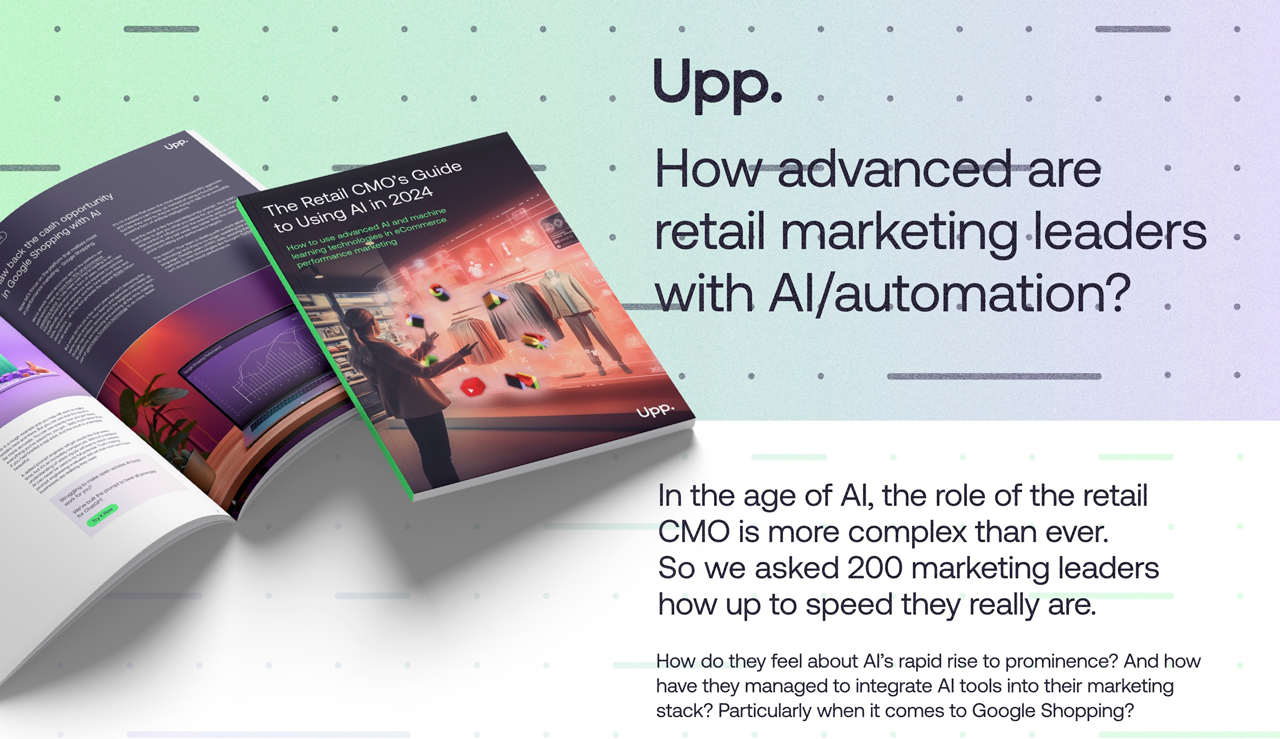Maximising the untapped power of Search: Why retailers need to shift their mindset
Retailers have long understood the importance of search engines in their marketing strategies. After all, search is one of the largest budget lines in digital marketing and drives an impressive £31.4 billion in annual retail spend. However, despite its prominence, search is often not appreciated to the extent it should be.
Search has grown up alongside eCommerce and digital marketing, becoming the backbone of the digital retail landscape. Yet, despite its central role in the consumer journey, many retailers still treat search as a tool for short-term conversions rather than a strategic asset that can influence demand at every stage of the buying process. This isn’t about relegating search to the background, it's about realising its full potential and investing in it as a cornerstone of sustained, long-term growth.
The missed opportunity in Search
While many retailers do invest heavily in search, too often they focus narrowly on its transactional power, failing to see it for what it truly is: an engine that powers every stage of the customer journey. From product discovery and validation to final purchase, consumers instinctively turn to search engines at each step, making it the most influential channel for retail discovery. However, treating search purely as a transactional channel limits its potential to shape demand throughout the customer journey.
Retailers need to expand their view of search. It’s not just about capturing immediate intent, it’s about influencing the entire buying process. The research suggests that £31.4 billion of retail spend is directly influenced by search, more than any other digital or physical touchpoint. Yet, many brands aren’t capitalising on this potential, failing to optimise search strategies at scale.
The complexity of executing Search at scale
Retailers today juggle vast inventories, millions of SKUs, the presence of marketplaces, shifting consumer preferences, and ever-evolving market conditions. In this complex, high-stakes environment, optimising search manually just doesn’t cut it anymore.
AI is the key to unlocking search’s full potential. With AI-driven platforms, retailers can optimise search in real-time, allowing them to react faster to changing demand signals. No longer do retailers need to manually adjust bids or rigid budgets - they can trust AI to continuously optimise strategies, ensuring that the right products are shown to the right consumers at the right time. Retailers who embrace AI aren’t just optimising for conversions, they’re optimising for relevance and engagement, driving long-term value from every search.
Navigating the fragmented attention economy
Today’s consumer journey is fragmented. Shoppers no longer follow a linear path from awareness to purchase. Instead, they hop between channels - seeing products on social media, researching them on search engines, comparing prices on marketplaces, and maybe being influenced by display based media before converting. The theory of a neat, linear funnel is outdated and probably never existed.
What this means for retailers is simple: to succeed, they need to be dynamically relevant at every point of the journey. AI empowers retailers to react in real-time to these fragmented behaviours, surfacing the right products at exactly the right moment, based on what consumers are actively seeking. Google’s PMax campaigns are a prime example of how search has evolved to meet consumers where they are in this complex, non-linear journey. AI ensures that products aren’t just visible - they’re contextually relevant, driving higher engagement across multiple touchpoints.
The disconnect: why retailers don’t see Search’s full value
There’s a clear gap between how consumers and retailers view the value of search. While consumers rank search as the most influential channel for discovery, many retailers rank it only third in effectiveness. This disconnect stems from the fact that retailers often overestimate the importance of their own digital real estate - believing that consumers will automatically gravitate to their websites or apps or that more visually engaging media and platforms are more impactful.
The reality is that search is the ultimate trust layer. Consumers turn to Google to validate decisions, compare products, and assess alternatives. If a retailer isn’t visible in search, they’re missing out on the chance to be a part of that validation process. The brands that truly capitalise on search are those that see it as an ongoing conversation, not just a single touchpoint. AI-driven search strategies close this perception gap by ensuring that every search query is met with the right product at the right time, at scale.
Unlocking the £6.7Bn opportunity
The report estimates that retailers could be missing out on £6.7 billion in annual sales due to underinvestment in search. This lost opportunity largely arises because many retailers still treat search as a fixed cost, focusing on managing budgets instead of optimising strategies.
To unlock this revenue potential, retailers need to stop treating search like a static line item and instead invest in AI-driven, dynamic strategies that adjust in real-time based on market conditions. By leveraging AI to optimise search strategy continuously, retailers can capture demand when and where it matters most, driving higher returns and unlocking long-term value from every search.
AI in Search: beyond bid automation
AI’s role in search goes beyond just adjusting bids. It’s about rethinking how search works altogether. In AI-driven campaigns like PMax, AI evaluates who is most likely to convert, which products to surface in real-time, and how to optimise creative assets for maximum engagement. The true transformation happens when retailers integrate real-time retail and product intelligence into their search strategies.
By feeding live eCommerce data, stock levels, pricing signals, and competitor insights into their AI systems, retailers can ensure that search performance is adaptive, not just efficient. This integration allows AI to optimise search in real-time, ensuring that products are shown to consumers when they are most likely to act.
The future of Search is AI-driven
If there’s one key takeaway from this research, it’s that search isn’t just another marketing channel - it’s the backbone of digital commerce. Retailers who want to succeed in the next era of retail must invest in AI-powered search strategies that optimise beyond just bid adjustments.
The first step is to embrace AI-driven performance models like Google PMax, which allow for real-time, dynamic optimisation. The second is to ensure that every search query is met with the right product, at the right time, based on data-driven insights.
Retailers who adapt to this shift will not only capture more demand but will be poised to lead in the rapidly evolving digital landscape. Search isn’t static - it’s an ever-evolving conversation, and those who optimise for relevance and intent will shape the future of retail.
For a deep dive into the research, sign up for our webinar with Retail Economics on 22nd May.



